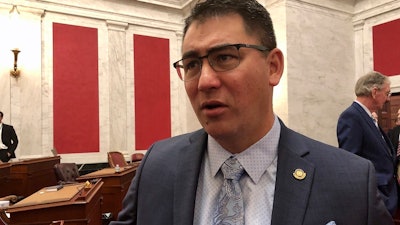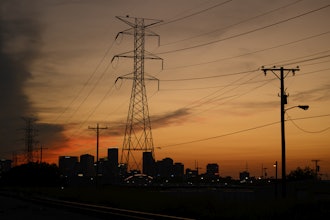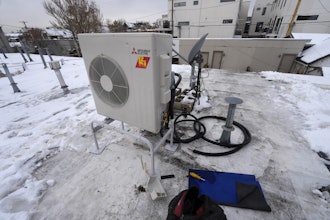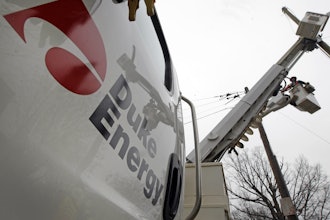
CHARLESTON, W.Va. (AP) — Signaling an eagerness to diversify its energy offerings, coal-dependent West Virginia would eliminate a ban on nuclear power plants under a bill that passed the state Senate on Tuesday.
The bill was approved on a 24-7 vote. Three senators did not vote. A similar bill is pending in the House of Delegates.
The state’s ban on nuclear plants was enacted in 1996, but nuclear power has in recent years gained support as a tool to keep climate change under control, with proponents noting that it emits few planet-damaging emissions and is safer on average than nearly any other energy source.
“All this bill does is simply says we’re open to discussion. That's it," said Kanawha County Republican Sen. Tom Takubo, the bill’s sponsor. "We’re not close minded.
"I think it's important for West Virginia to be looking forward to the future, looking forward to diversify, and simply say to the rest of the world we are open for discussion should this technology come to our mountain state.”
West Virginia is the nation’s second-largest coal producer, behind Wyoming, and accounted for 5% of the nation’s total energy production in 2019, ranking fifth among the states, according to the U.S. Energy Information Administration.
But West Virginia has lost thousands of coal jobs in the past decade as companies and utilities explore using other energy sources such as natural gas, solar and wind.
According to the Nuclear Energy Institute, coal provides 88% of West Virginia’s energy needs, followed by 5% from natural gas, 3.3% from wind, 3.1% from hydroelectric and 0.2% from other energy sources.
There are nuclear power plants in 28 states, although Georgia is the only state with a nuclear project currently under construction. Among surrounding states, there are a combined 8,500 nuclear energy jobs in Maryland, Ohio, Pennsylvania and Virginia, according to the NEI.
Some states are transitioning away from carbon dioxide-emitting fossil fuels to reduce greenhouse gas emissions and stave off the worst effects of a warming planet.
“When companies are looking at West Virginia and they have a market globally that they’re selling a product to, they need to say their carbon footprint is at or near zero," said Putnam County Republican Eric Tarr. “That requires a diverse portfolio of energy.”
Harrison County Democrat Mike Romano said he supports nuclear power but was concerned that the bill didn’t address regulatory oversight. But Mercer County Republican Chandler Swope said the state Public Service Commission has indicated it has authority over all forms of energy. Takubo said future legislatures could address nuclear plant planning if a company shows interest.
Monongalia County Democrat Bob Beach, another bill opponent, said he was concerned about national security, arguing that nuclear facilities could be targets. He said few states east of the Mississippi River do not have nuclear plants.
“I would like West Virginia to continue to be one of those safe states,” Beach said.
Supporters of nuclear energy say nuclear accidents are scary but exceedingly rare — while pollution from coal and other fossil fuels causes death and illness every day.
House Speaker Roger Hanshaw has indicated his support for the legislation.
He said Tuesday on Twitter that while the fossil fuel industry is not going away any time soon, "we’ve got to have baseload power. We just want to be sure that the signal we’re sending to the world is yeah, consider West Virginia.”





















